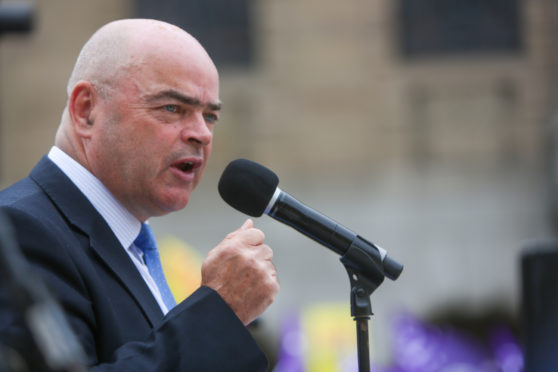A leading trade union has demanded talks after raising “significant concerns” about the way colleges on Shetland are to be merged into one institution.
The Educational Institute of Scotland (EIS), the country’s largest union for teachers and lecturers, issued a fresh warning last night over the proposed amalgamation of Shetland College, Train Shetland and the NAFC Marine Centre.
It has called for an emergency meeting of the College Lecturers’ Joint Consultative Committee at the college, and believes appropriate consultation with lecturing staff is essential before any decisions are made.
The EIS is particularly alarmed at a proposal for the new college to operate outside of the normal governance arrangements.
Larry Flanagan, the union’s general secretary, said: “While the EIS is supportive of the proposed merger, we continue to have significant concerns about suggestions that any new entity will be an unincorporated body, and therefore sit outwith the established governance arrangements for the Scottish further education sector.
“Given the importance of Shetland College to the local community, and considering the significant amount of public money involved, it is essential that appropriate scrutiny is in place.”
Mr Flanagan added: “The EIS has written to all parties concerned to raise our concerns related to this merger, and we continue to seek resolution to those concerns.
“We feel it is essential that there is appropriate consultation with staff, students and the wider community on the future of further education at Shetland College.”
A spokesperson from Shetland Islands Council said: “Discussions are ongoing with all those involved, including staff representatives, on every aspect of the college merger project.”
It was recently reported that the merged body would be called the “Shetland Institute, UHI” and that Professor Jane Lewis had been appointed its new principal.
Professor Lewis told Shetland News in October that she backed the decision by the shadow board to go down the unincorporated route.
“I’m sure having seen the shadow board work, they will have looked at that really, really carefully and they will have come to a careful decision, so I’m very happy that they’ve made the correct decision for the new institution,” she said.
“I think we will still be accountable to many, many masters. I think the sector is extremely tightly regulated.
“We would be able to seek funding from some different areas that maybe we wouldn’t be able to seek if we were incorporated.
“That will be really important because obviously the bottom line is the college is the thing that we’re all concerned about.”
